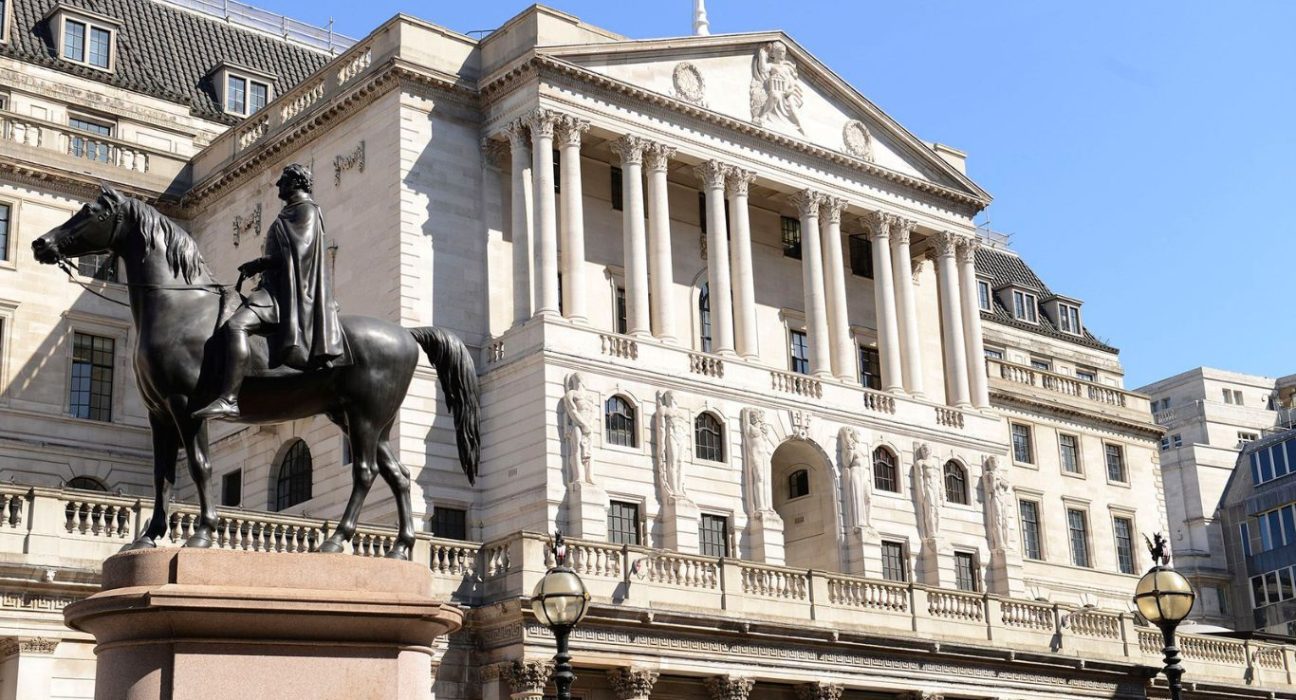QT is the opposite of quantitative easing (QE), which is a policy tool that central banks use to stimulate the economy by buying government bonds and other assets. QE lowers interest rates and increases the money supply, making borrowing cheaper and encouraging spending and investment.
The BoE started QE in 2009 in response to the global financial crisis and expanded it further during the Covid-19 pandemic. Between 2009 and 2021, the BoE bought 875 billion pounds ($1.1 trillion) worth of gilts, or UK government bonds, making it one of the largest holders of UK debt.
However, as the economy recovers from the pandemic shock and inflation rises above the BoE’s 2% target, the central bank has decided to reverse some of its stimulus and start shrinking its balance sheet. This means selling some of its gilts or letting them mature without reinvesting the proceeds.
By doing so, the BoE hopes to reduce the amount of money in circulation and put upward pressure on interest rates, which could help cool down inflation and prevent overheating. QT also reduces the BoE’s exposure to interest rate risk and restores some policy space for future crises.
How fast will the BoE reduce its bond holdings?
The BoE is currently reducing its gilt holdings by 80 billion pounds ($101 billion) per year, which is equivalent to about 9% of its total stock. The BoE’s Monetary Policy Committee (MPC) will review the pace of this reduction in September, when it will also update its economic forecasts.
Ramsden, who oversees the BoE’s balance sheet, said on Thursday that he was more likely to vote for a faster reduction than a slower one, given the strength of the economic recovery and the outlook for inflation.
“There’s potential for us to go up a little bit. I don’t see us going down given the experience of the first year (of quantitative tightening),” he told lawmakers from parliament’s Treasury Committee.
Ramsden did not specify how much he would like to increase the pace of QT, but some analysts have suggested that it could double to 160 billion pounds ($202 billion) per year. This would imply that the BoE could reduce its gilt holdings by about 18% per year, or by more than 300 billion pounds ($379 billion) by the end of 2025.
How will QT affect the economy and the markets?
The impact of QT on the economy and the markets is uncertain and depends on several factors, such as the size, speed and communication of the policy change, as well as the expectations and reactions of investors, consumers and businesses.
In theory, QT should have a contractionary effect on the economy by raising interest rates and reducing liquidity. However, some economists argue that QT may have a limited or even positive impact if it signals confidence in the economic recovery and supports financial stability.
The effect of QT on interest rates also depends on how much demand there is for gilts from other investors, such as pension funds, insurance companies and foreign buyers. If there is strong demand for gilts, their prices may not fall much and their yields may not rise much as the BoE sells them. Conversely, if there is weak demand for gilts, their prices may drop sharply and their yields may spike as the BoE sells them.
The BoE has said that it will conduct QT in a gradual and predictable manner, taking into account market conditions and avoiding disruptions. The BoE has also said that it will coordinate QT with its other policy tools, such as interest rates and forward guidance.
What are the risks and challenges of QT?
QT is a relatively new and untested policy tool that poses several risks and challenges for both the BoE and the government.
One risk is that QT could trigger a sharp rise in interest rates that could hurt economic growth, financial stability and debt sustainability. This could happen if QT causes a sudden shift in market expectations or confidence, or if it coincides with other shocks or stress factors.
Another risk is that QT could create political tensions between the BoE and the government. This could happen if QT reduces the government’s revenues from coupon payments or increases its borrowing costs at a time when public debt is high and fiscal policy is expansionary.
A third risk is that QT could undermine the credibility and independence of the BoE. This could happen if QT is seen as inconsistent with the BoE’s inflation mandate or influenced by political pressures or market forces.
A fourth risk is that QT could face operational or technical difficulties that could hamper its effectiveness or efficiency. This could happen if QT encounters problems with market liquidity, availability or allocation of gilts, or communication with market participants.
What are some alternatives or complements to QT?
QT is not the only option for reducing monetary stimulus or controlling inflation. The BoE could also use other tools, such as raising interest rates, tightening macroprudential regulations, issuing new types of liabilities or changing its inflation target.
Some of these tools may be more effective or appropriate than QT in certain circumstances or for certain objectives. For example, raising interest rates may be more direct and flexible than selling gilts for influencing borrowing costs and inflation expectations. Issuing new types of liabilities may be more efficient than selling gilts for managing liquidity and balance sheet risks.
However, some of these tools may also have drawbacks or limitations that make them less desirable or feasible than QT. For example, tightening macroprudential regulations may have unintended consequences for financial stability or credit allocation. Changing
the inflation target may erode trust in the BoE’s commitment or credibility.
Therefore, the BoE may need to combine QT with other tools in a balanced and coherent way to achieve its policy goals while minimizing potential costs or trade-offs.










